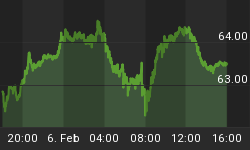As fears of a dollar meltdown have loomed ever larger in recent years, major investors, including central banks, have moved significant portions of their cash reserves into the euro, the currency of the European Union (EU). And while it is true that the euro offers some shelter from the American economic catastrophe, the currency does come with baggage that investors should not ignore.
Introduced as an accounting medium in 1990, the euro became an actual currency in 1992. It is currently issued by 16 of the 27 EU member countries, representing some 329 million people. With almost $1 trillion in circulation, it is the world's largest physical currency.
The birth of the euro was a stunning example of putting the cart before the horse. When it was first issued as a physical currency in 1999, the major states that participated were not yet united. Many believe that this premature introduction was done to hasten the political union. In hindsight, the strategy was successful. The single currency removed a key psychological barrier towards unification.
As soon as it made its debut, the euro quickly became the second largest currency held in the official foreign reserves of central banks. Major corporations and investors followed suit. By September 2007, former Fed chairman Alan Greenspan said it would be "absolutely conceivable that the euro will replace the dollar as the dominant foreign reserve currency, or will be traded as an equally important reserve currency."
However, the structural problems that were so heavily debated at the birth of the EU remain unresolved. These uncertainties may undermine the euro as a viable dollar-alternative. Should recent economic strains continue unchecked, investors, institutions, and central banks may move heavily into gold as an ultimate "safe haven."
In the U.S., monetary union depends upon political union. When California faces a crushing debt burden, it can neither print its own highly inflationary currency to ease the pressure (though its "IOU's" are a haphazard attempt) nor leave the union to avoid this constraint. Thus, crises in U.S. states tend to push states toward the central government as they seek assistance from Uncle Sam. EU member states similarly lack their own printing presses and are therefore unable to monetize their problems. But in Europe, the emergency exit is always open - states can leave if they believe their interests are not being considered.
The EU does not have a common fiscal policy, so countries are free to bankrupt themselves according to their own decree. But when they do, there is no formal option of seeking a bailout from the pan-European government. Even if such a road were available under the EU treaties, the European Central Bank, modeled on the famously inflation-wary German Bundesbank, would be unwilling to monetize the additional spending.
Partially because of this stringent monetary policy, the euro has risen by some 40 percent against the dollar since its launch. This has severely hurt eurozone export economies like Spain, Portugal and Italy, who have long relied on currency devaluation to subsidize their manufacturers.
While countries like Germany, the world's largest exporter, have been successful in utilizing the benefits of a strong currency to continue selling products at a real profit, others have failed. Indeed, both Italy and Greece now have government debts in excess of GDP (115% and 113%, respectively). Furthermore, Greece, with a budget deficit of some 12.7 percent of GDP, is now threatened with default.
Although the EU, by and large, currently spurns talk of a bailout for Greece, the debate will intensify if the economy deteriorates further. If, in order to preserve union, the EU does decide to bail out an individual member state, what precedent would that set?
Germany, the strongest EU economy, found it a Herculean task to bail out just 17 million people in the former East Germany. Could it even contemplate bailing out not one, but several other EU member states, without attendant political control?
There seems little room to move forward under the status quo. Though the Lisbon Treaty (read: EU constitution) just came into effect, it was passed without the mandate of citizen referenda. The member states remain culturally distinct, the citizens have little allegiance to the behemoth in Brussels, and, therefore, it seems far-fetched that the EU would go to war to compel one of its members to remain in the club. With little to glue it together, investors are questioning whether the eurozone is strong enough to withstand the shocks that would accompany a dollar collapse.
As the credibility of the U.S. dollar has eroded and that of the euro is now suspect, it is likely that investors will continue their quiet rush into gold. If so, silver is likely to become a store of value for smaller investors and the small change of the rich. In such a world, the price of silver could rise even faster than that of gold.
For a more in-depth analysis of our financial problems and the inherent dangers they pose for the U.S. economy and U.S. dollar, read Peter Schiff's 2008 bestseller "The Little Book of Bull Moves in Bear Markets" and his newest release "Crash Proof 2.0: How to Profit from the Economic Collapse." Click here to learn more.
More importantly, don't let the great deals pass you by. Get an inside view of Peter's playbook with his new Special Report, "Peter Schiff's Five Favorite Investment Choices for the Next Five Years." Click here to dowload the report for free. You can find more free services for global investors, and learn about the Euro Pacific advantage, at www.europac.net.















